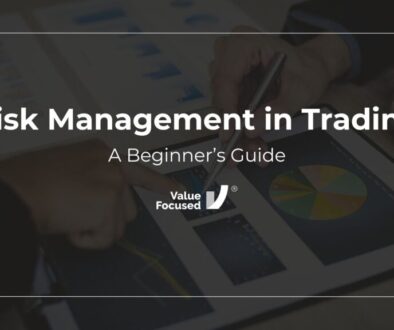Top Mistakes to Avoid When Investing in Stocks
Investing in stocks can be one of the most rewarding ways to build wealth over time. However, for many people, the journey is far from smooth. Often, mistakes in stock investing result from a lack of preparation or simply following the crowd. To help you make more informed decisions, we’re highlighting some of the most common pitfalls and offering practical advice to keep your portfolio on track.
1. Lack of Research and Due Diligence

Take time to analyze a company’s financial health, growth potential, and competitive position. Fundamental analysis can help you evaluate the company’s intrinsic value, while technical analysis can guide your entry and exit points. Instead of blindly following recommendations, equip yourself with knowledge about the stocks you choose to buy.
2.Ignoring Diversification
“Don’t put all your eggs in one basket” is a piece of timeless investment advice. Investing all your money in a single stock or sector is risky. If that sector underperforms or faces economic issues, your entire portfolio could take a big hit.
Diversification—spreading your investments across various industries and asset classes—helps balance the risk. For example, if you hold technology stocks, consider diversifying into healthcare, finance, or consumer goods. This way, even if one sector falters, the others can help cushion the blow. Diversification doesn’t guarantee profits, but it’s a tried-and-true way to manage risk in stock investing.
3.Letting Emotions Drive Decisions
Stock investing can be an emotional rollercoaster. When prices dip, fear sets in, and when prices soar, greed takes over. Emotional decisions can often lead to regrettable choices, such as selling in a panic during a downturn or chasing trends and overpaying for stocks.
One way to avoid emotional investing is by having a clear plan. Define your financial goals and stick to your strategy. Remind yourself that market volatility is normal, and short-term fluctuations should not dictate your long-term investment decisions. Practicing patience and staying grounded can help you stay calm even during market turbulence.
4.Timing the Market

Research shows that time in the market generally beats trying to time the market. Rather than stressing over finding the ideal time to enter or exit, focus on staying invested over the long term. If you believe in the fundamentals of the stocks you own, they are likely to grow over time despite occasional dips.
5.Not Having a Clear Investment Strategy

An investment strategy also acts as a roadmap during tough times. For example, if you’re a growth investor, you might focus on high-growth companies even if their stocks are volatile. If income is your priority, you might prefer dividend-paying stocks. By aligning your choices with a clear strategy, you’ll have more confidence in your decisions.
6.Neglecting Risk Management
In stock investing, it’s essential to balance the potential for reward with an awareness of risk. One common mistake is not setting boundaries for losses. Without risk management, a single poorly performing stock can drag down your entire portfolio.
To manage risk, consider setting stop-loss orders to limit potential losses. These automated orders sell a stock when it drops to a predetermined price, helping prevent further losses. It’s also crucial to understand your risk tolerance. If market downturns keep you awake at night, you may want to stick to safer investments or limit the proportion of risky stocks in your portfolio.
7.Failing to Review and Adjust Portfolio Regularly
Many investors believe that once they’ve selected stocks, they can just leave their portfolio alone. While long-term stock investing is typically a “buy and hold” approach, that doesn’t mean you should never review your portfolio.
Periodic reviews help ensure that your investments align with your goals and that your risk level remains appropriate. For example, if a stock grows significantly and becomes a large part of your portfolio, you may want to rebalance. Adjustments may also be necessary if your financial goals or personal situation changes. Regularly assessing your portfolio helps keep it in tune with your objectives.
8.Overlooking the Impact of Fees and Taxes

Choosing a broker with low fees can help, as can looking for tax-efficient investment accounts if they’re available in your country. Also, try to minimize unnecessary trading, as each trade incurs a fee. By being mindful of these expenses, you can keep more of your gains and grow your wealth more effectively.
Conclusion
Stock investing is a powerful way to build wealth, but it requires patience, knowledge, and discipline. Avoiding these common mistakes can make a huge difference in your journey. Remember to conduct thorough research, diversify wisely, and keep emotions in check. Stay invested for the long term, follow a clear strategy, and periodically review your portfolio to stay aligned with your goals.
Investing doesn’t have to be stressful, but it should be intentional. Avoiding these missteps will set you up for greater success as you build your portfolio. Embrace learning and enjoy the growth—both of your investments and your understanding of the stock market.




